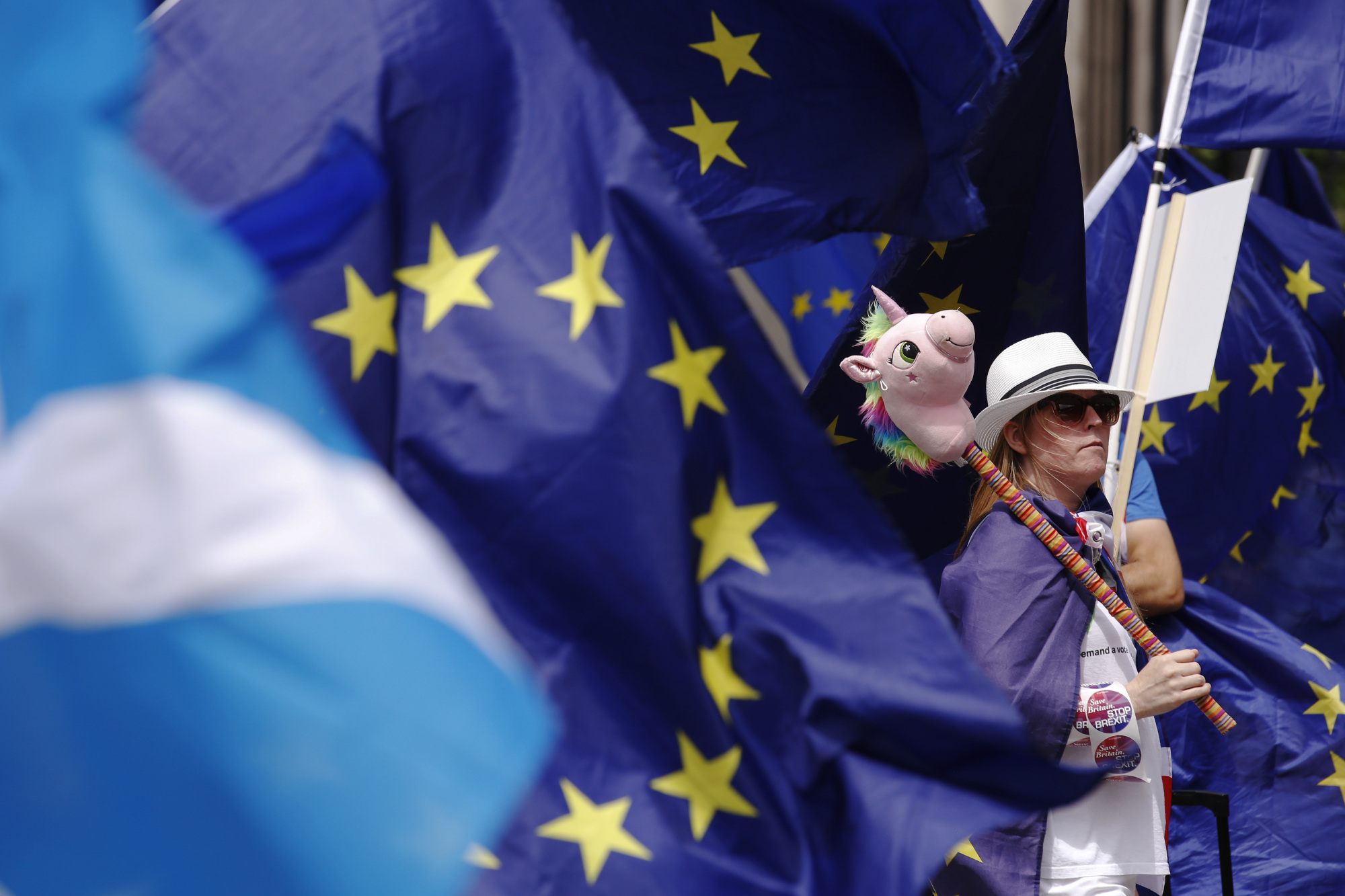At 10 p.m. on June 23, 2016, Sky News projected the words "IN OR OUT" across the top of a London building as an orchestral score ratcheted up the tension. "In or out—it is too late to change your mind," declared Adam Boulton, the veteran anchor, seated in a makeshift studio across from Big Ben. "The polls have closed in the U.K.'s historic referendum on EU membership." Election nights are major productions for British broadcasters, but Brexit was bigger, with Sky viewers watching worldwide.
After the dramatic intro, Boulton jumped straight in with a huge exclusive, declaring he had "breaking news." Nigel Farage, the global face of the Brexit campaign, had given Sky what sounded like a concession. His photo and a statement filled the screen, as Faisal Islam, Sky's political editor, read Farage's words aloud: "It's been an extraordinary referendum campaign, turnout looks to be exceptionally high and [it] looks like 'remain' will edge it. UKIP and I are going nowhere and the party will only continue to grow stronger in the future."
In the next segment, Boulton delivered another exclusive. Joe Twyman, head of political research for YouGov, one of the U.K.'s most prominent polling firms, appeared on set with the results of an online exit poll conducted for Sky. He explained that the firm had been tracking the same voters—and they had moved farther into the "remain" camp that day. Based on that, Twyman said, "We now expect that the United Kingdom will remain part of the European Union. It's 52 percent "remain," 48 percent Leave, so it's still close and it's still too early to know definitely—but, based on the figures that we're seeing, based on the trends that have occurred, and based on historical precedent—we think that "remain" are in the strongest position." As in past elections, Twyman added, voters had embraced the status quo on Election Day.



